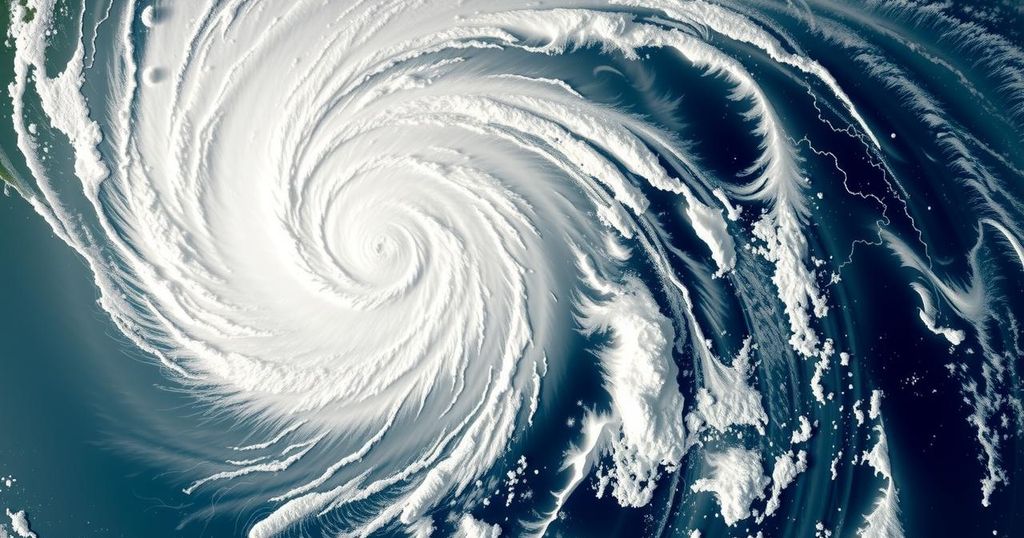Cyclone Chido Approaches Comoros, Madagascar, and Mozambique: A Climate Crisis
Cyclone Chido is advancing towards Comoros, Madagascar, Mayotte, and Mozambique, bringing severe winds and heavy rain. Authorities are closing schools and issuing red alerts, while evacuations and emergency preparations are underway. Over two million people in Mozambique are at risk, heightening concerns about flooding and waterborne diseases due to intensified cyclonic activity linked to climate change.
Cyclone Chido, a formidable tropical storm, is advancing towards the islands of Comoros, Madagascar, Mayotte, and the eastern coast of Africa, particularly targeting Mozambique. This cyclone is anticipated to unleash severe winds and torrential rainfall, presenting a grave hazard to the affected regions. Authorities in Comoros have responded by closing schools ahead of the cyclone’s expected arrival early on Saturday. Additionally, Mayotte is on high alert, with the French national weather service issuing a red alert, signifying potential danger.
Mozambique has also declared a red alert for its northern provinces, Cabo Delgado and Nampula, affecting over two million residents. The Mozambique National Meteorological Institute has predicted wind speeds could reach up to 200 kilometers per hour (124 mph) as Cyclone Chido reaches landfall. Preparations are underway in Madagascar, with residents receiving alerts to take protective measures, including evacuation procedures in the northern Diana region, where the storm is projected to be most devastating.
In light of the imminent threat, local authorities have been distributing food and emergency resources to regions vulnerable to the cyclone’s wrath. The French government is mobilizing additional resources to assist Mayotte in recovery and relief efforts. Experts have cautioned that climate change is exacerbating the intensity and frequency of cyclones in this area, raising concerns about potential flooding, landslides, and outbreaks of waterborne diseases, including cholera, dengue fever, and malaria.
As the cyclone season commences, residents are strongly urged to remain vigilant and heed safety advisories issued by authorities to protect themselves from the forthcoming natural disaster.
Cyclone Chido forms part of a seasonal pattern of intense weather events impacting the Indian Ocean region, particularly affecting the East African coastal areas. Historical data suggests an increase in cyclone intensity attributable to climate change, which is a growing concern for vulnerable populations. These storms not only cause immediate physical damage but also elevate risks of secondary disasters, including health crises related to waterborne illnesses, necessitating comprehensive preparedness and response strategies from local governments and international aid agencies.
In summary, Cyclone Chido poses a serious threat to regions across Comoros, Madagascar, Mayotte, and Mozambique, with authorities taking proactive measures to safeguard populations. The potential for high winds, heavy rain, and subsequent flooding underscores the urgent need for emergency preparedness and response. Heightened awareness of climate change-related impacts on cyclones amplifies the necessity for sustained vigilance throughout the cyclone season.
Original Source: www.inkl.com




Post Comment